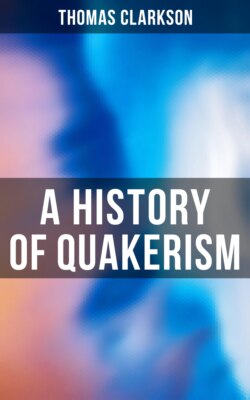Читать книгу A History of Quakerism - Thomas Clarkson - Страница 19
На сайте Литреса книга снята с продажи.
SECT. II.
ОглавлениеTheatre forbidden by the Quakers on account of the manner of the drama—first, as it personates the character of others—secondly, as it professes to reform vice.
The Quakers have many reasons to give, why, as a society of christians they cannot encourage the theatre, by being present at any of its exhibitions. I shall not detail all of them for the reader, but shall select such only, as I think most material to the point.
The first class of arguments comprehends such as relate, to what may be called the manner of the drama. The Quakers object to the manner of the drama, or to its fictitious nature, in consequence of which men personate characters, that are not their own. This personification they hold to be injurious to the man, who is compelled to practise it. Not that he will partake of the bad passions, which he personates, but that the trick and trade of representing what he does not feel, must make him at all times an actor; and his looks, and words, and actions, will be all sophisticated. And this evil will be likely to continue with him in the various changes of his life.
They hold it also to be contrary to the spirit of Christianity. For men who personate characters in this way, express joy and grief, when in reality there may be none of these feelings in their hearts. They express noble sentiments, when their whole lives may have been remarkable for their meanness, and go often afterwards and wallow in sensual delights. They personate the virtuous character to day, and perhaps to-morrow that of the rake, and, in the latter case, they utter his profligate sentiments, and speak his profane language. Now Christianity requires simplicity and truth. It allows no man to pretend to be what he is not. And it requires great circumspection of its followers with respect to what they may utter, because it makes every man accountable for his idle words.
The Quakers therefore are of opinion, that they cannot as men, either professing christian tenets, or christian love, encourage others to assume false characters, or to 5 personate those which are not their own.
They object also to the manner of the drama, even where it professes to be a school for morals. For where it teaches morality, it inculcates rather the refined virtue of heathenism, than the strict, though mild discipline of the gospel. And where it attempts to extirpate vice, it does it rather by making it ridiculous, than by making men shun it for the love of virtue. It no where fixes the deep christian principle, by which men are bound to avoid it as sin, but places the propriety of the dereliction of it rather upon the loss of reputation among the world, than upon any sense of religious duty.
